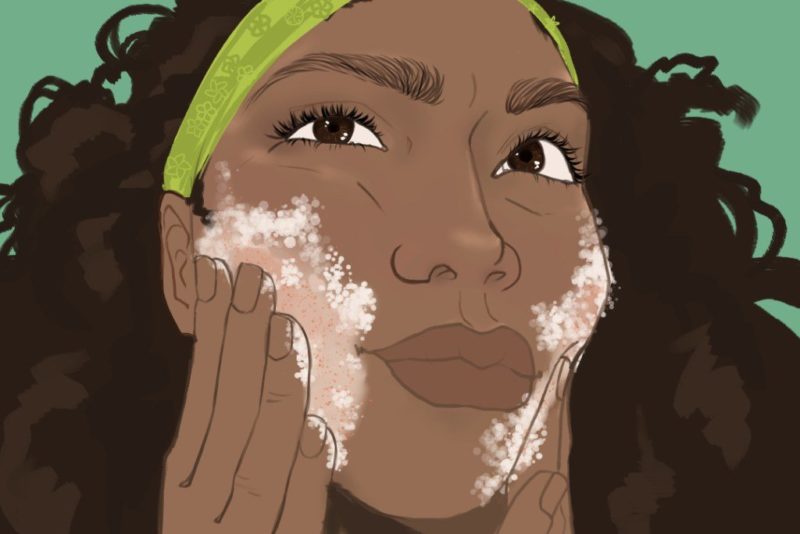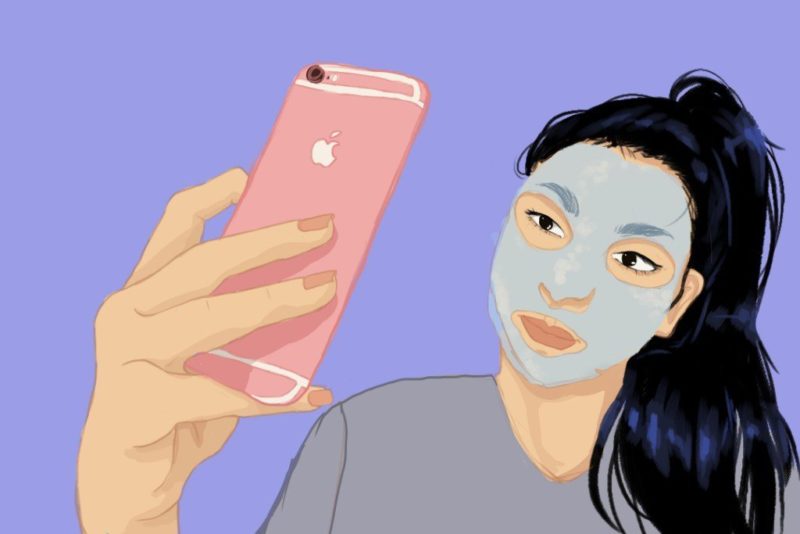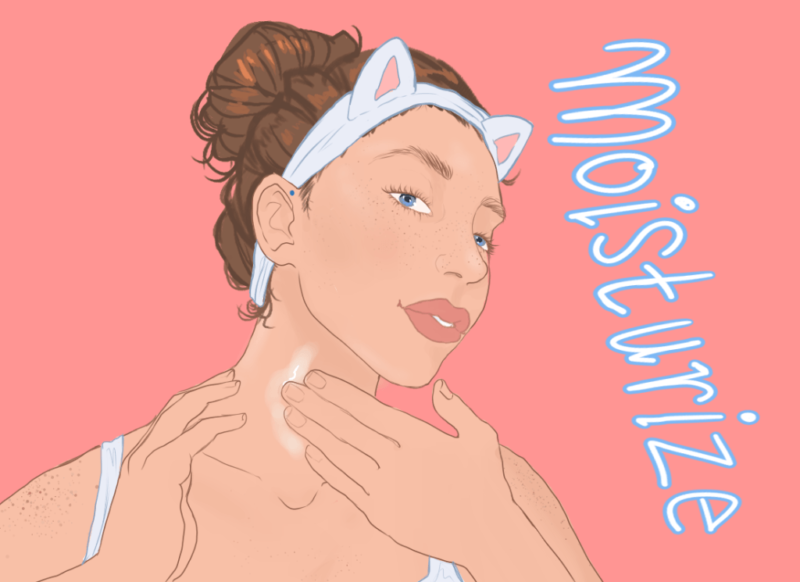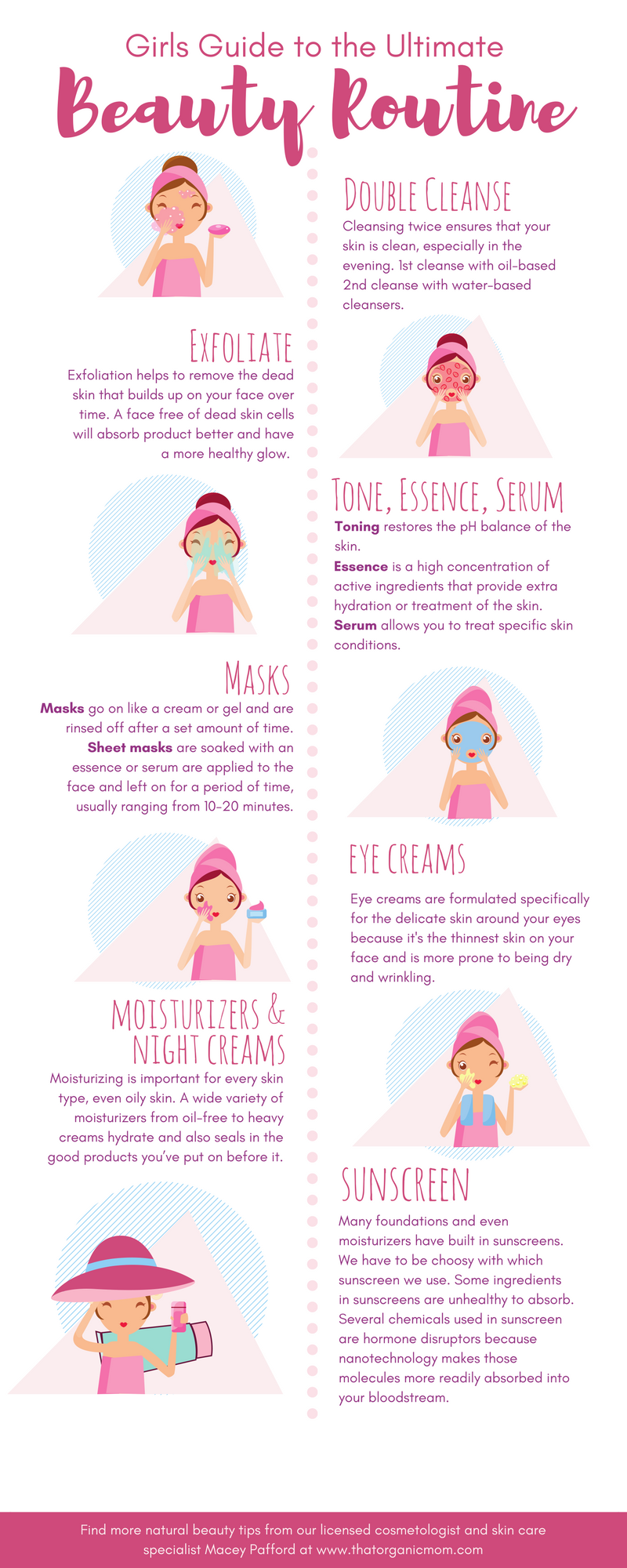Last Updated on June 29, 2022 by Rebecca Huff
A beauty routine can help keep our skin looking healthy
It’s an age-old quest; how do I keep that youthful look for as long as I possibly can? I will eventually go into depth about this, but for now, I want to cover what I consider the ultimate beauty routine. In a series of upcoming posts, I will explain each of these 10 Steps more in-depth. As far as skincare is concerned many of us are a bit lazy.
Being beautiful on the outside starts on the inside, you’ll hear us say that a lot. Eating as healthily as we can and drinking plenty of water can only make the outside glow and be able to repair itself as needed. What we do on the outside helps our skin along and protects it from environmental damage.
The need for a basic beauty routine
So today we are going to take a look at our skincare routines. How to care for your skin no matter what stage of life you are in. I can hear it now:
I don’t have time.
We’re just going to age anyway.
I hate using products.
I always say it’s easier to take care of your skin now than it is to treat it later. In the spa, I talk to so many people who come in for facials saying “I wish someone would have told me how to take care of my skin at a younger age.” This doesn't mean if you’re past the point of preventing skin damage there's no hope for you. Believe me, there is!
Though, if you are at the place in life where you can avoid this damage to your skin, why not?! Starting a good skincare routine when you’re young will keep it that way longer.
A full 10-step beauty routine isn’t for everyone. I get that! If you don’t want to invest too much money or time into your skincare routine, you can get away with 5-steps that are the most important to do. I’ll have an asterisk (*) by the step name for your five most important steps if you need a more simplified skincare routine.
When to start a beauty routine
I believe you’re never too young to start a skincare routine. Although, if you’re looking for a particular age to start, I usually recommend when kids hit their teens as a good time to seriously consider it. Hormones play a huge factor in our skin and how it reacts, so the earlier on you start controlling your skin, the better.
We will walk through the steps here, and then go in-depth with each step in the upcoming series.
Finding the right products for your skin is a trial and error process. It will take time and effort to sift through products to find what works for you. You also need to know how your skin behaves, what type of skin you have, when and what breaks you out or flares up your rosacea for example. If you don’t know your skin, it’s going to do what it wants, when it wants, and you probably won’t like it.
Double Cleansing*
One of the most important things we can do in taking care of our skin is to keep it clean, and NO, that bar of soap and a splash of water does not count!
If you use a makeup remover and facial cleanser, you may already be practicing a form of double cleansing.
So this would technically be two steps because you need to cleanse your face twice in a row with two separate products. Your first cleanser being oil-based (yes, even if you have oily skin) and your second cleanse should be with a water-based cleanser. If you have tried oil cleansers before and decided they just aren't for you, double cleansing with your regular cleanser is still important at the end of the day. Especially if you wear makeup and/or sunscreen. This is also something that we learn in school for aesthetics.
Cleansing twice ensures that your skin is clean, especially in the evening. Dirt, oil, makeup, and sunscreen left on will clog pores, and clogged pores mean whiteheads, blackheads, and dull skin. Also, clean skin absorbs products better thus giving you the best benefits from the product that you can get!
Choosing a face wash that is right for your skin type is important. We all want a gentle cleanser and not one that is harsh or stripping for daily use. Cleansing oil, foaming cleanser, gel-based cleansers and cleansing milk are just a few types you can choose from.
Exfoliation
Depending on your skin type, you'll want to exfoliate once to twice a week. Exfoliation helps to remove the dead skin that builds up on your face over time. A face free of dead skin cells will absorb the product better and have a more healthy glow. (Say goodbye to dull skin!)
There are two ways of exfoliation: manual and chemical. Applying an exfoliant product with your hands is considered manual. Whereas using something such as Vitamin C or other exfoliation ingredients work chemically as they sit on the skin.
For those with sensitive skin, rosacea or other conditions, exfoliating can be a double-edged sword. Choose exfoliating skin-care products that are specially formulated for your type of skin.

Basic Toning*
Toning is an essential step in your skincare regimen. A toner restores the pH balance of the skin. (We will get into what that means to your skin in our upcoming Toning post.) Using the proper toner for your skin will set a good foundation for the products you apply to your skin afterward. Toners vary in ingredients to treat different types of skin needs as well as restoring the pH balance.
You can spray on and wipe off with a cotton pad or spray on just before applying essence and serum to allow the products to absorb better.
Essence
What is essence? Well, for a while it was thought to be the Korean equivalent of “serum,” but this is not the case. An essence is a more lightweight version of a serum packed with a high concentration of active ingredients. Since essences are a thinner consistency, they absorb into the skin more quickly and provide extra hydration or treatment of the skin.
An essence is created by cosmetic chemist to treat certain skin conditions such as dark spots or acne-prone skin. Some will contain ingredients such as hydroxy acids, peptides or antioxidants.
Other essence formulas may be target the eye area to help improve skin tone and dark circles or puffy eyes.
Serums – treating products
A serum is an ingredient rich product that allows you to treat skin conditions such as acne, rosacea, hyperpigmentation, fine lines, breakouts, etc. Serum, ampoule or booster are other names given to products in this category. If you have multiple serums, you will apply them on the skin from the thinnest to the thickest consistency.
You may not think you need to treat your skin, but no one has perfect skin even if it looks that way from afar. Most likely every person has something that they have to manage or control. Whether it be excess oil, rosacea, or fine lines, often they have simply found out what works for their skin and how to handle their particular challenge.
Vitamin C Serum is popular for its ability to neutralize free radicals. Hyaluronic acid is often found in serums as it works to smooth the texture of skin while minimizing the look of fine lines and wrinkles by drawing hydration to the area.
Masks/Sheet Masks
One of my favorites! Sheet masks are an optional step, but they are fun and can have significant benefits for your skin. It’s something you can do a few times a week, or if you feel like it, use sheet masks every day!
Sheet masks soaked with an essence or serum are applied to the face and left on for a period of time, usually ranging from 10-20 minutes. Regular face masks go on like a cream or gel and are rinsed off after a set amount of time.
Sheet masks are relatively inexpensive so you can try out a ton of different ones. Some of our favorite are targeted for anti-aging, brightening, stimulating collagen production, improving the skin barrier and overall skin wellness.
Some sheet masks are designed for spot treatment and may be applied only to the under eye area, lips, or even the neck.
Using a sheet mask is a fun part of my skincare regimen. I like to take the time my mask sits on to read or watch a tv show. (Later I’ll give you tips on how to make the most of your masks via my favorite sheet mask hacks!)

Eye Creams
The skin around your eyes is the thinnest and most sensitive skin on your face and is more prone to being dry and wrinkling. Because there are fewer oil glands in the area, your regular moisturizer won’t do here. Your eyes can age up to 10 times faster than the rest of your face. So the earlier you start taking care of them, the better.
Eye creams are formulated specifically for this delicate skin and since it’s such a small area, a little bit of product goes a long way. They range in what they treat from keeping the skin hydrated, fighting and preventing dark circles to reducing puffiness and fine lines. The latter are especially useful to those with very fair skin.
Moisturizers & Night Creams*
Moisturizing is important for every skin type, even oily skin. You will find a variety of moisturizers from oil-free to heavy creams. Not only do you need to hydrate but this last step helps to seal in the good products you’ve put on before it.
Moisturizers can also have ingredients that help treat skin conditions. In the case you don’t feel like layering serums find a good moisturizer for your skin type and needs.

Once or twice a week, depending on the season, I replace my moisturizer at night with a night cream. Night creams will be an even heavier formula that you gently spread on your skin (not rub in) and let absorb overnight. These can treat multiple things or just give your skin some extra hydration.
Face oil is another layer of moisturizer that you may consider adding to your routine at night. If you do face yoga or practice gua sha, face oil is a must! If you have been using oil-free beauty products, you might think it odd to add face oil to your skin, but it is actually very hydrating. Jojoba, argan, and rosehip are excellent choices for those with oily or dry skin.
You can often find moisturizers with built-in sunscreen which is nice because it can save you a step. However, you won’t want to use sunscreen at night, so you’ll probably end up with a regular moisturizer anyways. Just remember to moisturize your face, for the best skin appearance and soft supple feel.
Sunscreen*
I have a love-hate relationship with this topic. It tends to bring up a lot of controversies, and you’re either on the sun is poison side, or the sunscreen is poison side. Well, I’m here to tell you there’s an in-between, or at least to me there is.
I believe we need some UV rays to help the body produce Vitamin D. Ultraviolet B (UVB) rays interact with a protein in the skin, which is converted into vitamin D3, the active form of vitamin D
Believe me, vitamin D deficiencies are no joke. At the same time, I also think there is such a thing as too much sun. A sunburn is never, NEVER good and will not lead to a healthy look for your future skin.
Many foundations and even moisturizers have built-in sunscreens. We also have to be wary of the quality of sunscreen used. Some ingredients in your sunscreen are unhealthy to absorb. Several chemicals used in sunscreen are hormone disruptors since nanotechnology makes those molecules more readily absorbed into your bloodstream.
All in all, there is a difference between appropriate sun exposure and overexposure. Don’t worry; I’ll help you decide on the best sunscreens in our Sunscreen post coming soon. I'll cover dermatologist recommendations and what SPF level is best for different circumstances.
It’s important to find a product that meets your personal standards. For my mom and I, we choose products with a low rating on the EWG’s SkinDeep® scale. We spend a tremendous amount of time researching and studying ingredients so that we can use the safest products possible. For wearing under foundation, we choose products with SPF 30.
Summary
In upcoming posts, we'll share more about other personal care products, evaluate lotion, acne treatments, and explain ingredients used in the products you put on your skin.
There are your steps to a full skincare regimen! It seems like a lot at first, but I promise it will get easier. Once you find out what your skin needs and start getting your routine down it will be a breeze. It will become second nature, and you’ll be saying hello to healthier, happy skin.
Take the three-minute beauty assessment and let the experts create a skincare routine personalized just for you! Or, get a 30-minute skincare consultation to help you make the best choices or deal with trouble areas.



 Iron Deficiency Anemia and Chest Pain – My Journey
Iron Deficiency Anemia and Chest Pain – My Journey
Leave a Reply
You must be logged in to post a comment.